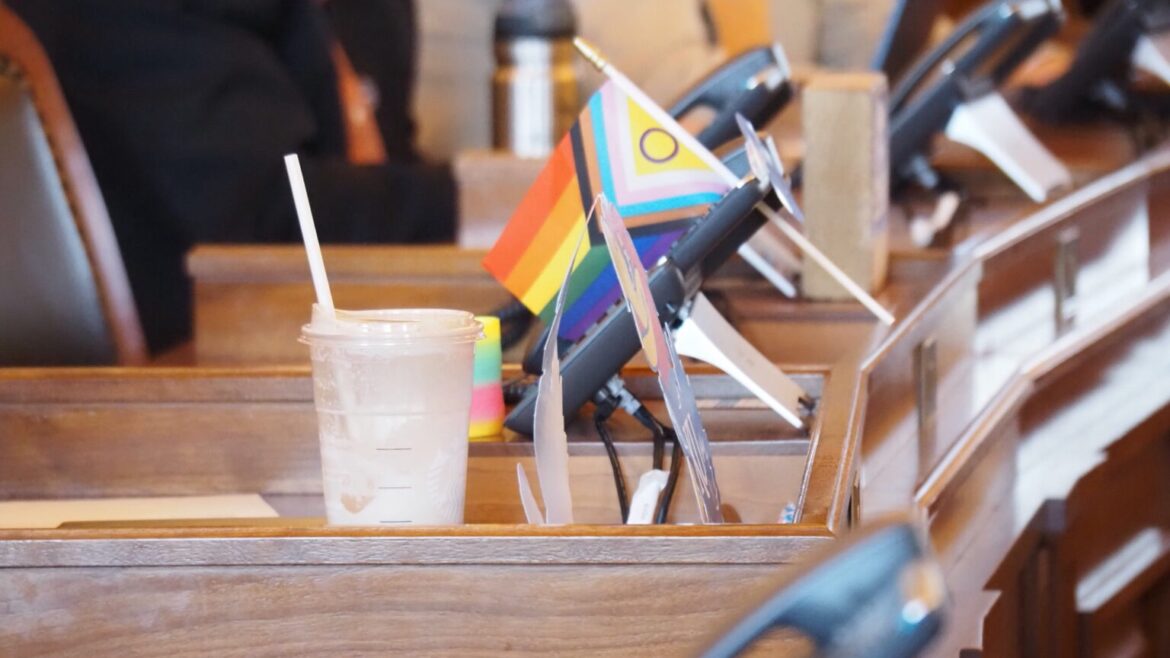This op-ed originally appeared on Kansas Reflector and is republished here under a Creative Commons license.
Just like that, a chilling cut to public television funds in Kansas was rescinded.
Wednesday morning, the Senate Ways and Means Committee heard budget recommendations from the Senate Commerce Committee. Last week, that panel had stripped 10% of the state’s PBS funds. Why? Sen. Caryn Tyson, R-Parker, was offended by a documentary about LGBTQ+ Kansans. While an attack on free speech and expression, the cut was somehow better than Tyson’s original proposal of dynamiting the entire $500,000 public television budget.
“We have the hammer, and I’m going to swing this hammer in a large way,” Tyson said then.
The tone was substantially different Wednesday morning.
“I hate to see us cut public broadcasting because of hearsay,” said Sen. Carolyn McGinn, R-Sedgwick, after attempting to pry details of the cut from Commerce Charwoman Sen. Renee Erickson, R-Wichita. Erickson wouldn’t name the offending show, and Tyson didn’t do so last week either — I only identified it as “No Place Like Home: The Struggle Against Hate in Kansas” after checking with the head of the Kansas Public Broadcasting Council.
“There are a lot of very good shows on PBS,” McGinn continued, “everything from children’s programs to woodworking to cooking to all kinds of things. And I learn a great deal watching that from time to time. And they also have what I could call very conservative shows on.”
The senator then noted she had planned to ask for an increase in public broadcasting funding, citing higher allocations in surrounding states and repeated cuts to Kansas’ support.
Later in the hearing, McGinn indeed asked to restore the $50,000 cut and add $200,000 to the total allotment. After some fiscal wrangling, Senate President Ty Masterson, R-Andover, suggested the committee simply rescind the cut and talk about the increase later. It agreed and moved onto the next item, sparing further embarrassment to all concerned.
That was that. Right?
Nope.
Yes, Wednesday’s decision was a positive step. But Tyson’s content-based threat — and Erickson’s willingness to defend it — should still chill Kansas broadcasters.
Director Kevin Willmott noted that “none of the film’s funding came from PBS,” yet Kansas stations still faced Tyson’s wrath. What are folks who host and assemble statewide political discussion shows such as Kansas Week and I’ve Got Issues supposed to think? Should they submit lists of potential guests to lawmakers for approval? Will guests think twice before sharing their thoughts? (Kansas Reflector staff, for the record, have appeared on both shows.)
In reporting about the cut, Kansas Reflector staff reached out repeatedly to Tyson. I tried to get in touch with Erickson, too. These legislators had multiple opportunities to clear the air as to their true motivations and feelings. They chose not to engage.
Restoring the money isn’t and can’t be enough. State legislators need to state, publicly and strongly, that they support free expression and will not attempt to quash critical viewpoints.
Precedent backs the broadcasters.
As Maxwell Kautsch, president of the Kansas Coalition for Open Government and a media lawyer, told me over the weekend, “the issue of whether public broadcasting stations are permitted to editorialize has been settled for decades, when in Federal Communications Commission v. League of Women Voters of California, 468 U.S. 364 (1984) the U.S. Supreme Court struck down the portion of the Public Broadcasting Act that conditioned public funds on stations not engaging in editorializing.”
The nation’s highest court has weighed in. And it did so because commentary matters. Critiquing our elected leaders — especially when they use their power to discriminate against the powerless — goes to the core of free expression. No one should fear punishment from the government for speaking their mind.
In this case, the free speech comes from a progressive direction. It can also come from a conservative direction, along with every other possible point on the compass. We all have the right to engage in public dialogue.
We all have the responsibility to understand why.
“’No Place Like Home’ was protected expression highlighting a matter of statewide concern,” Katusch said. He added: “The U.S. Supreme Court has found that ‘[t]here is practically universal agreement that a major purpose’ of the First Amendment ‘was to protect the free discussion of governmental affairs.’”
Yes, that means that our feelings may get hurt. Lawmakers’ feelings may get hurt. But that doesn’t entitle them to swing a hammer of retribution.
Clay Wirestone is Kansas Reflector opinion editor.

